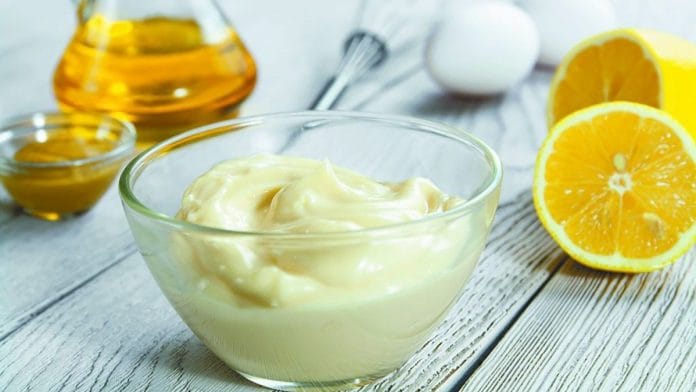I am not even sure how to say this, but Telangana’s new gastronomical enemy is mayonnaise. Yes, the one condiment that almost every shawarma and fast-food joint loves to slather on their dishes has been banned for a year.
This swift and rather extreme reaction by the Telangana government is both puzzling and amusing. The order, which prohibits the sale, purchase, production and storage of raw egg mayonnaise, came into effect on 30 October, three days after the death of a woman who consumed momo with contaminated mayonnaise. Officials discovered several instances of food poisoning, but none led to such a drastic decision.
This baffling ban raises several questions, particularly in light of the Telangana food safety department’s recent raids and random quality checks in Hyderabad restaurants over the last four to five months.
Will food safety officials now seek evidence of mayonnaise made from pasteurised eggs during inspection? Will shawarma stalls now use ‘unhealthy’ veg mayonnaise?
The only positive outcome I can imagine is that food outlets might just start making authentic Shawarma with toum (garlic sauce) instead of dunking it in mayonnaise.
What happens next?
A few restaurant owners in Hyderabad I spoke to said they won’t be using mayonnaise for now. But smaller food joints are caught between secretly using it or risking the loss of customers.
Perhaps the government should issue instructions on how to make mayonnaise. How about a video that can be circulated among small and big outlets? And what happens after a year? Will food joints ensure they are not serving us contaminated mayonnaise and giving us food poisoning?
I am equally curious about the decision to use a person’s death to order the ban. What if the woman, Reshma Begum, had died from consuming contaminated chicken? Would the authorities have banned chicken for a year? Her death is indeed tragic, not to mention her family members who also fell sick from eating the momo. Those running the eatery were rightly arrested. But is mayonnaise the culprit here?
What next? Hyderabadis are absolute Irani Chai lovers. If something goes amiss tomorrow, will we ban chai also? There have been various instances of food poisoning in the past; we can’t just go around banning food. And if you must ban something, at least ban it for good.
Pani Puri has caused enough food poisoning, but it hasn’t been banned. Self-regulation and maintenance of cleanliness by vendors should be the focus.
Also read: Dear Telangana police, Hyderabad is a youthful hi-tech hub. Stop drug testing partygoers
Overexcited authorities
The ban on mayonnaise seems to be an extension of the food safety department’s recent raids on outlets across Hyderabad. While some penalty for lack of hygiene is essential, the department’s actions in most cases were rather peculiar.
An acquaintance who runs a fancy restobar in Hyderabad was fined for keeping uncooked dal without mentioning its expiry date. “We keep dal and rice stored at home for months, and no one even thinks about it. To find that and make an issue out of it was very absurd,” he told me after the department’s inspection in the first week of October.
At the same time, restaurants notorious for terrible and unhygienic standards have not been raided. These inspections started only after Congress came to power last year, as the food safety department barely held such surprise checks before. Some food outlet owners allege that it’s all a game of money.
Does this mean that the department was earlier lax and did not care about what we ate? Will raids on eateries and bans on food items become the norm now? So many questions, and barely any answers. Food safety department officials didn’t have much to say on this when I reached out to them.
On the flip side, Hyderabadis who hated mayonnaise on shawarma approve of the ban. Subreddits and threads on X are full of comments supporting the state government’s decision. At least someone’s happy.
Yunus Lasania is a Hyderabad-based journalist whose work primarily focuses on politics, history and culture. Views are personal.
(Edited by Zoya Bhatti)







raw egg is a problem in Indian conditions, heat and humidity
.
After all, mayo is just a suspension of egg in oil
.
Should be eaten fresh, or if refrigerated, within a week.
.